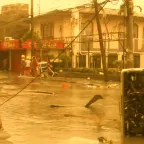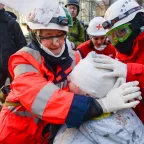Philippines: helping communities affected by typhoon Haiyan (Yolanda)
Six months after Typhoon Haiyan (Yolanda) hit, a lot still needs to be done for the millions of people who lost family members, homes and livelihoods. This video shows how the Red Cross Red Crescent …








